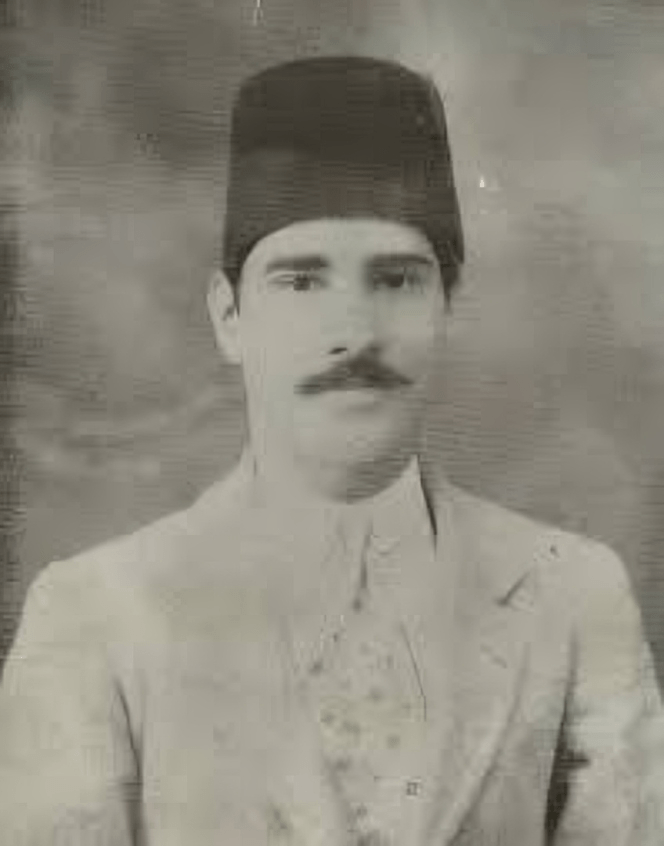Allama Inayatullah Mashriqi was born in a respectable and well-to-do Rajput family in Amritsar on August 25, 1888. His ancestors held prominent positions in the Mughal court and his father, Khan Ata Mohammad Khan, was a resourceful and talented person who saw a number of Muslim luminaries like Jamaluddin Afghani, Sir Syed Ahmed Khan, Mirza Ghalib and Shibli Nomani. Ata Khan owned a biweekly, Vakil of Amritsar that served the cause of re-awakening the Muslims and discussing their political issues.
Allama Mashriqi liked reading and had strong inclination for mathematics from his childhood. In the school he always got a number of awards and scholarships and was popular amongst his teachers and friends. After completing intermediate, he was admitted in the celebrated Forman Christian College, Lahore, where he distinguished himself by securing the first position in his Masters in mathematics at the age of 19. Then he proceeded to England for higher studies where he had a distinguished career, and took a number of degrees with distinction. From the Christ’s College of the Cambridge University he was awarded titles of Wrangler, Bachelor Scholar and Foundation Scholar for passing four Triposes with distinction in Mathematics, Natural Sciences, Mechanical Sciences and Oriental languages within five years. At Cambridge one of his teacher was a distinguished 20th Century scholar and authority on astronomy, Professor James Jeans with whom he often shared thought provoking dialogues. He was Fellow Geographical Society (Paris), Fellow Society of Arts (Paris), and Fellow of the Royal Society of Arts (F.R.S.A). Being a renowned Mathematician he became President of the Mathematical Society, Member of the Delhi University Board. He was awarded the Gold Medal by the World Society of Islam. While he was in England, he was contacted by the Maharaja of Alver for State Premiership. With least interest in this position or meeting the Maharaja, he declined the offer. After completing his education in England, he traveled around Europe and returned to India in 1912. At the age of 25, he was appointed the vice-principal of the Islamia College, Peshawar by the Chief Commissioner, Sir George Roos-Keppel (at that time equivalent to the governor). He was made principal of the same college in 1917. Thus he served as the youngest Vice-Principal and Principal of the college. Owing to his outstanding caliber, competence and capability, he was appointed under secretary, Government of India, in the education department. Sir George Anderson held the same position prior to Allama Mashriqi’s appointment and was much older when he had joined the education department. Thus he was the youngest Indian to hold these important positions. Later on, he was offered the ambassadorship of Afghanistan at the age 32 and the title of Sir at the age of 33, but both of them he straightforwardly declined.
As Allama came from a wealthy family, he was always seen dressed in English attire. He maintained luxury cars and had servants to perform household chores and serve the food. However, he soon abandoned this lifestyle to lead a humble and simpler life and resolved to work for the welfare of Muslims. He started wearing plain khaki clothes made out of inexpensive cloth. He sat, walked, and talked with anyone who came to see him. It made no difference to him whether he was meeting the Head of the State or a man from the street.
After serving for about 17 years in the education department, he proceeded to launch a movement known as Khaksar Tehreek. The Khaksars were volunteers mostly belonging to the lower middle class. However, it also attracted a number of youth, the highly educated and well-to-do class of Muslims from the sub-continent who liked his strict army discipline and austere way of life. Through this movement, Allama intended to bring revolution in the society by uplifting and elevating the Muslims. Drilling and parading in playgrounds, streets and neighborhoods Khaksars were seen clad in khaki uniform with shovels upon their shoulders. Through this movement, Allama intended to bring revolution in the society by uplifting and elevating the Muslims but failed due to his eccentric behavior and non-cooperation with the Muslim League.
Allama Mashriqi believed in Pan-Islamism. He met different world leaders on the issue of Muslims’ independence in India. He also exchanged views on the issue of Muslims with prominent leaders of Saudi Arabia, Morocco, Tunis, Egypt, Iraq, and Turkey. He led a delegation at Mo’tmar-i-Khilafat in Cairo, Egypt and also attended the Palestine World Conference and was the President of the World Faiths Conference in 1937. Allama Mashriqi wrote many books, the most famous of which was Tazkirah (in two volumes), a commentary on the Holy Quran and the Laws of Nature. It earned him great repute as the committee for Nobel Prize nominated it subject to the condition that it was translated into one of the European languages. Allama, however, could not accede to the suggestion of translation. In 1926, Allama visited various European countries in order to draw attention of scientists and scholars to Tazkirah; among them was Albert Einstein, with whom he continued to communicate even afterwards. His per-chance meeting with Adolph Hitler whose party was still in embryonic stage is stated to have left deep impact on Allama in forming Khaksar movement. Other books he wrote include Isharat, Qaul-i-Faisal, Hedithul Quran, Farogh-i-Islam, Takmilah. Some of his books remained incomplete at the time of his death.
Allama Mashriqi was a sage in his own right but remained a controversial personality. He died of cancer in Lahore in August 1963.
This article was last updated on Monday, Jan 01, 2007






